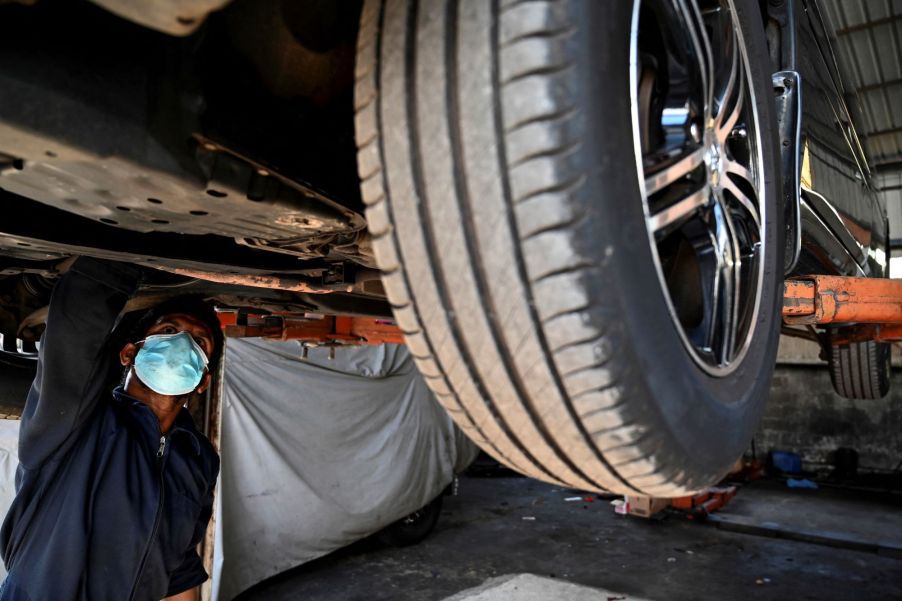
When Should I Change My Automatic Transmission Fluid?
When reviewing regularly scheduled maintenance for your vehicle, things like checking the tire treads, brake pads, and motor oil usually top the list. But even if you have an automatic transmission, you should add changing your transmission fluid to that list, even if you think you don’t have to change it.

Why automatic transmission fluid is so important
Mobil reminds us that the fluids in your car serve the critical function of maintaining and lubricating various parts. Since a car’s automatic transmission works via a series of gears to change and modulate gears and speed for you, keeping those parts properly lubricated is pivotal to the longevity of the transmission and your car.
During regular driving and use, the gears drop metal shavings into the transmission fluid. The buildup of those shavings and gunk will cause problems with your transmission if left unchecked. Since the transmission is a vital system in a vehicle, if something goes wrong or fails, you’ll potentially be left stranded.
How frequently should you change your automatic transmission fluid?
Generally speaking, you should change your automatic transmission fluid about every two years, Go Auto mentions. Alternately, you can consider changing it every 30,000 miles. Depending on how many miles you drive each year, it might take over two years to put on that many miles.
If you’re having trouble with transmission performance like noisy gear changes or trouble going through gears, you may need to change your automatic transmission fluid before the recommended time.
Additionally, it’s advisable to check your automatic transmission fluid using the dipstick on your engine under the hood. You’ll want to be on the lookout for fluid that is dark or smells burned. A leaking transmission fluid pooling under the vehicle is another warning sign that you’ll need to service your car.
The difference between transmission fluid in an automatic versus a manual transmission
Without getting too complicated, the main difference between automatic transmission fluid and clutch fluid for a manual centers around how each mechanism works.
In an automatic gearbox, the transmission decides when to shift or change gears, dependent upon factors like how fast you’re driving or if you’re driving on flat roads or an incline. You, as the driver, don’t have to engage anything but the gas pedal, and the car does the rest.
In a manual, the vehicle driver determines and engages the clutch pedal and physically shifts using the shift knob. Those actions work together to put the car in a different gear. The driver determines at what point and how frequently to change gears. You also have to be conscious of not hitting the redline in a manual, which might damage or overheat the engine if you take too long to shift.
The manual versus automatic process affects the wear and tear on a transmission. While an automatic may be more efficient because it’s an engineered or computerized mechanism, a skilled driver may be able to judge situations more quickly when it comes to needing to change gears in various scenarios.
On the other hand, there is always the element of human error and slipping the clutch or grinding gears in a manual that can adversely affect transmission and vehicle operation.
During typical vehicle use without too many mishaps, most people don’t change the clutch fluid in a manual transmission as frequently as is needed in an automatic. Still, it’s a good idea to follow around the same guidelines and change your clutch fluid about every two years.


